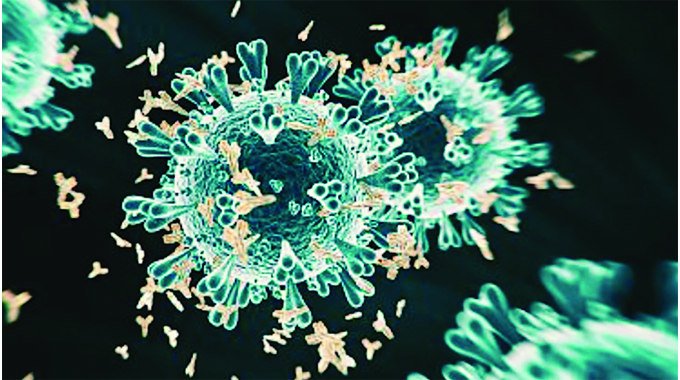WHO warns on increase of Covid-19 cases

Bongani Ndlovu, Chronicle Reporter
WHO says in the past seven days Africa has recorded a 16 percent increase of Covid-19 cases and observing basic preventive measures remain key in reducing the number of infections across the globe, including Zimbabwe.
WHO Covid-19 Technical Lead, Dr Maria Van Kerkhove yesterday outlined the drivers of transmission and necessary measures to be put in place.
Zimbabwe has been recording an increase in infections and deaths and as of yesterday there were 267 people who had died due to Covid-19 in the past week.
In a Twitter post by WHO Zimbabwe, Dr Van Kerkhove said the world is not in a good place in terms of infections of the deadly disease.
“We need to be blunt when we need to be blunt. We are not in a good place. In Africa there was a 16.7 percent increase in cases in the last seven days. There was a 16.4 percent increase in the Eastern Mediterranean region. A 33 percent increase in cases across Europe. An 8.6 percent increase in South- East Asia.
A 10 percent increase in the western Pacific. There are more than two dozen countries that have epidemic curves that are almost vertical right now. This is not the situation we should be in when we have the tools at hand,” said Dr Van Kerkhove.
She said there are four key drivers of transmission.
“There are four major factors that are driving transmission. One is the virus itself. This is a dangerous virus to begin with. Now we have these virus variants that have increased transmissibility. The second factor is mixing. We know that the social mixing, the social mobility of people is increasing around the world. These events around the world drive transmission because you bring people together if the right interventions are not in place.
“The third factor is reduced use; inappropriate use of public health and social measures. The use of these measures does not mean lockdown. It’s a combination of interventions at the individual level, to the community level and it covers anything from wearing of masks, physical distancing, and avoiding these crowded indoor spaces. Spending more time outdoors than indoors. Improving ventilation. Keeping your hands clean,” said Dr Van Kerkhove.
“The last factor that’s challenging us right now is the inequitable and uneven distribution of vaccines. If you have variants of concern that are circulating, if you have increased social mobility and social mixing, if you have the inappropriate use of public health and social measures, and you give a very susceptible population the virus will thrive.”
Dr Van Kerkhove said these were the only practical means in fighting the virus around the world.
“This is not theoretical. We are not talking about a what if situation right now. It’s happening now. We have the upper hand here. Let’s use the tools that we have to keep transmission down and really be smart. Play it safe. Do what we can at an individual level measures, have really strong policies that are agile that adapt to the local situation, and we all really need to play our part here and do what we can to drive this transmission down. The virus has a hold over us right now and we need to regain control over this virus,” said Dr Van Kerkhove.
In Zimbabwe the Government has instituted a level four lockdown, with police arresting more than 6 000 people in the past week as some citizens continue to defy lockdown measures which have resulted in a surge in the number of positive cases.
Another intervention by the Government of Zimbabwe is the vaccination drive to achieve herd immunity and 886 619 people have been vaccinated against Covid-19. — Follow on Twitter @bonganinkunzi








Comments